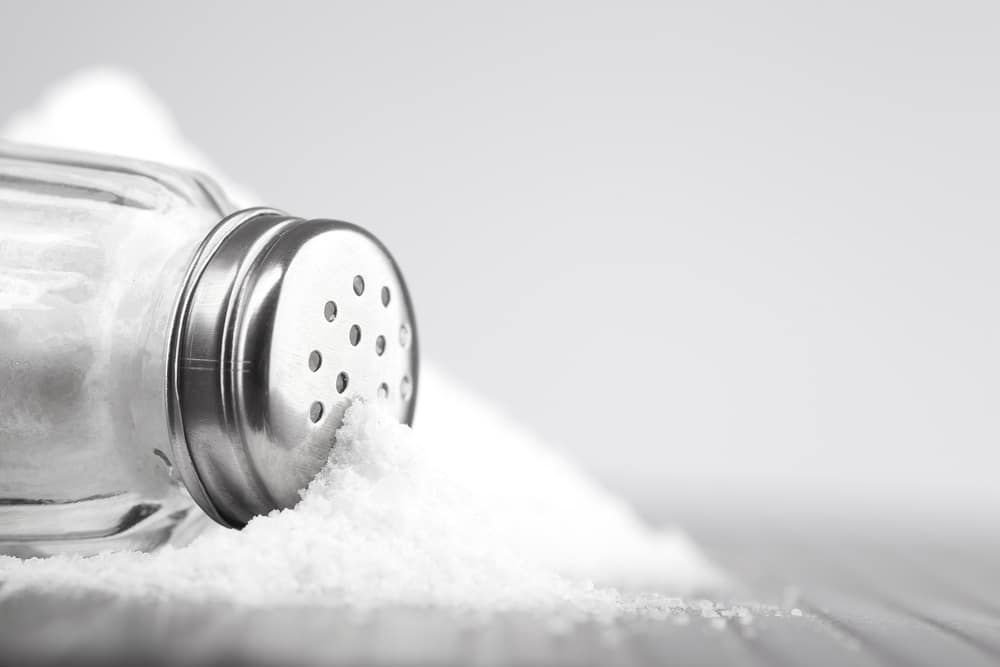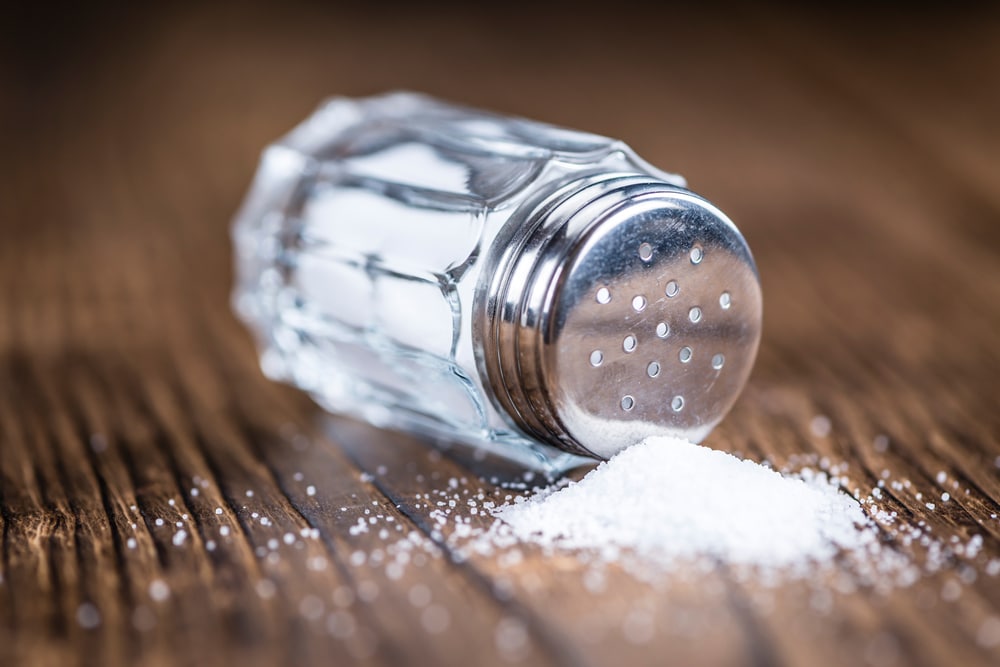It’s movie night, and you sit yourself down and grab yourself a drink and your favorite salted potato chips. Your dog is sleeping soundly. But the moment you open that bag, it is sitting next to you with big puppy eyes begging for you to share some of that snack. But can dogs eat salt?
Dogs are allowed to eat salt. However, the amount of salt should be regulated because if they have too much, they may end up with excessive thirst, frequent desire to potty, and upset tummy.
Table of Contents
What Is Salt And What Is Its Effect On Dogs?

Salt is a crystal-like natural formation that consists of two things: sodium and chlorine. When inside the body, it turns into ions that help regulate important metabolic processes, fluid level, blood volume, and blood pressure, and they help in nerve and muscle impulse transportation.
When the body has too much salt in it, meaning your furry friend got its paws on the bag of chips, the level of sodium will rise, which could lead to sodium toxicity. Hypernatremia is the official medical term that doctors use to describe high levels of sodium in the body. This can happen when the dog ingests a great amount of salt and does not have access to enough fresh water.
But this does not mean your dog should not ingest salt. In cases when your dog does not get enough salt in the body, hyponatremia occurs, which is the opposite of hypernatremia and means low sodium levels in the blood.
As a side note, the easiest way for your dog to lose a great amount of sodium is when they have diarrhea and vomit.
What Happens When Dogs Ingest Too Much Salt And How To Help
There are several things you may notice that could make you suspicious of your dog stealing your chips. The lack of snacks from the table, in combination with the symptoms below, could give you the final clue as to what happened to your food.
Excessive Thirst
You hear your dog going up to its water plate and finishing it fast. A bit too fast, in fact. Even more curious, it’s demanding more soon after. Dehydration caused by the ingested amount of salt does that to them. Make sure your dog has enough fresh water, even if that means you may have to take it for a potty walk more often that day.
Frequent Desire To Potty
Well, all that water needs to come out, right? Even if you haven’t seen your dog drink a lot of water, its desire for it may be one of the signs of excessive salt ingestion. But it could also mean that your dog has some urinary infection too.
Upset Tummy
Your dog was happy to swim in the sea, but drinking salty water won’t be fun for you when you have to clean up some vomit and a runny stool. Your dog may feel under the weather for some time too, but just provide them with fresh water, and they will be back to their normal in no time.
When To Call The Vet?
Even though the possibility of your dog suffering any serious consequences after ingesting a bag of salty potato chips is low, consider calling your vet anyway, as it never hurts to do so. The main problem with excessive salt ingestion is the possibility of dehydration, which is why you need to make sure your dog has plenty of fresh water to drink and can have regular potty breaks.
What Products Could Cause Salt Toxicity In Dogs?
If you feed your dog commercial dry food, rest assured the food is a balanced meal that most certainly has proper salt in it. With that said, here is a list of things that might contain salt and which could be potentially harmful to your furry friend:
- Bath salts
- Pretzels
- French fries
- Some types of cheese
- Highly processed meat like salami, sausages, hot dogs
Please keep in mind these are just some examples and not the entire list of possibilities.
Conclusion: Can Dogs Eat Salt?
Salt is an essential element in your dog’s diet, but too much salt could be harmful to your best friend. We always advise our readers to consult their vet before giving them any human food.
So, does your dog like salt? Let us know in the comments below!
